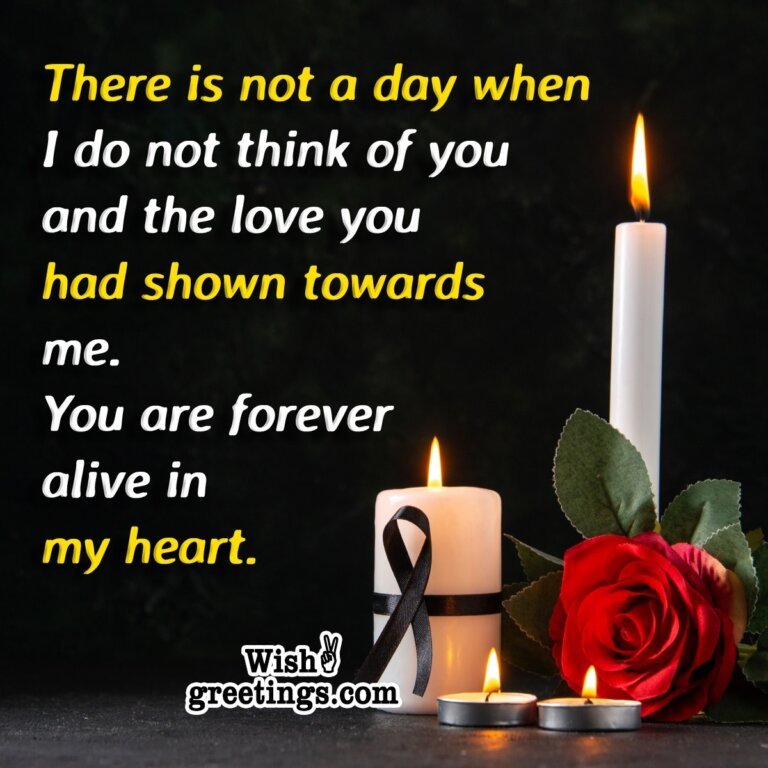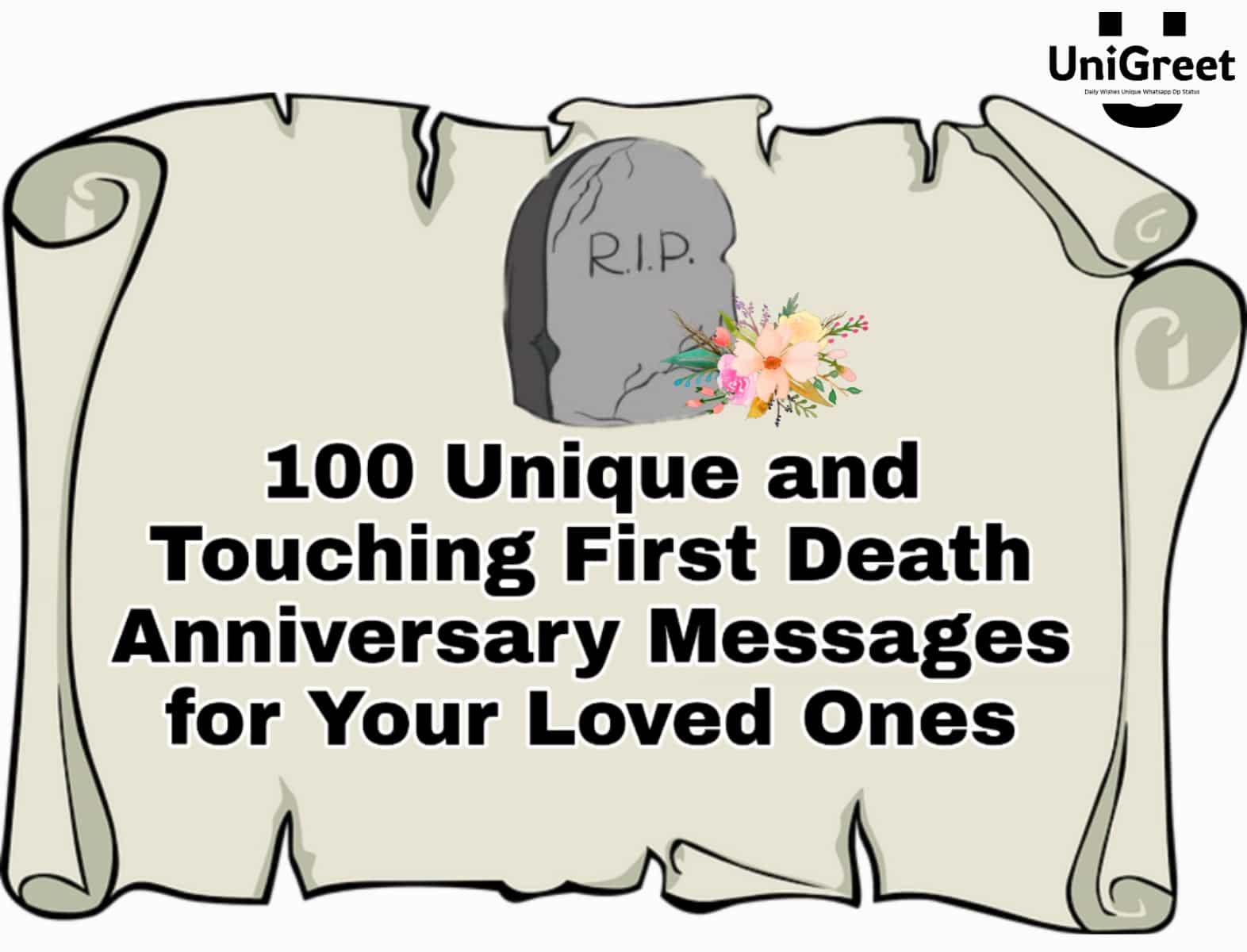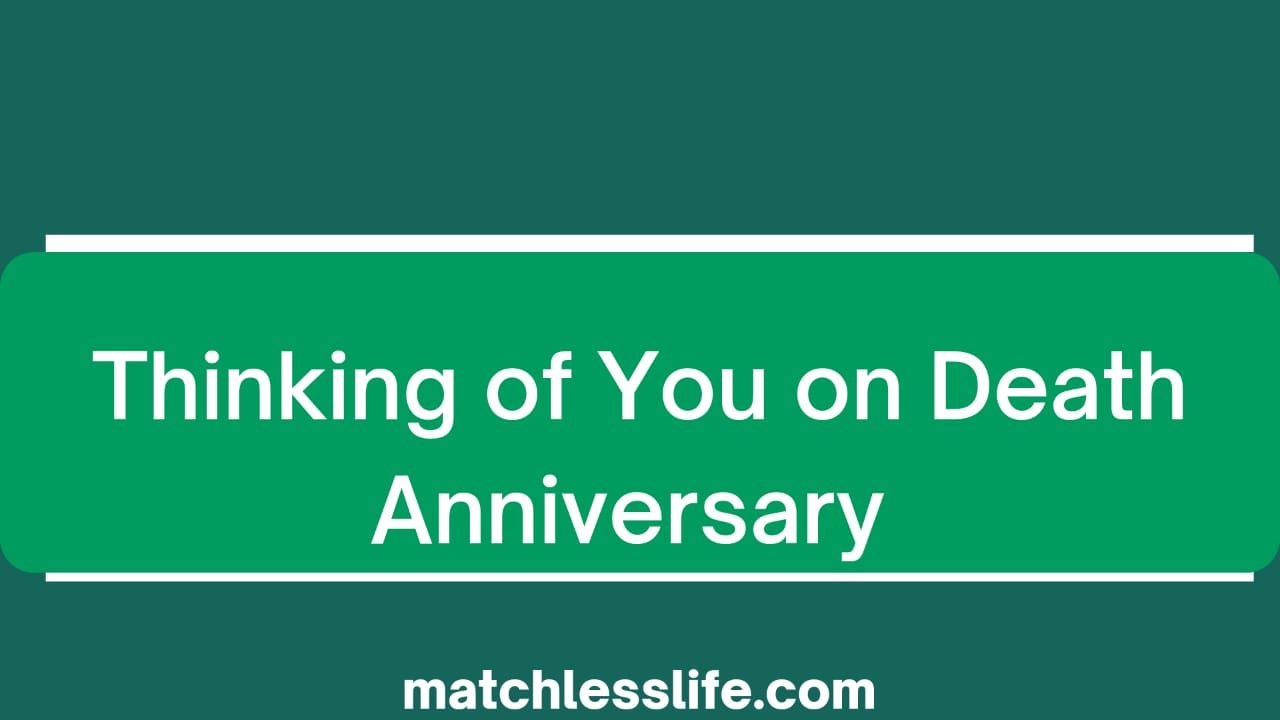so listen up, guys. today we're diving into a topic that hits deep—thinking of you anniversary death. it's one of those moments when time feels like it stops, and your heart aches for someone who's no longer with you. anniversaries are supposed to be celebrations, right? but when grief lingers, it changes everything. this is not just about remembering; it's about honoring, healing, and finding peace in the midst of loss.
we all know anniversaries are supposed to be joyous occasions. they mark milestones, moments of love, and shared experiences. but what happens when those milestones are clouded by the absence of someone we deeply care about? thinking of you on an anniversary after death is a bittersweet journey that many navigate silently. it’s a time when emotions run high, and the weight of memories becomes both a comfort and a burden.
here's the thing—loss doesn’t erase love. and anniversaries can still hold meaning even when the person we're celebrating isn’t physically present. this article aims to help you process those feelings, find ways to honor their memory, and perhaps even discover a new kind of joy in remembrance. so stick around, because we're going to explore this deeply personal topic together.
Read also:Good Morning Monday Prayers And Blessings Kickstart Your Week With Faith And Positivity
what does thinking of you anniversary death really mean?
thinking of you anniversary death is more than just a phrase; it's a reflection of emotions tied to loss and remembrance. it represents that moment when you find yourself reminiscing about someone who shaped your life but is no longer here. anniversaries, whether romantic or familial, are times when we naturally think about the people we love. but when death enters the equation, these moments become layered with complexity.
it's about acknowledging the void left behind while celebrating the impact that person had on your life. it's about honoring their legacy and keeping their memory alive through your actions and thoughts. it's also about allowing yourself to feel the full spectrum of emotions—grief, love, sadness, and even joy—all intertwined in this poignant experience.
why do anniversaries after death feel so different?
anniversaries after death are emotionally charged because they mark a time when things were different. they remind us of what once was and what now feels lost. it's not just about missing someone; it's about confronting the reality that life has changed forever. the absence becomes more pronounced during these special dates, making the grief feel fresh, even years later.
here’s the kicker: anniversaries after death can also be opportunities for growth. they push us to reflect on our journey, acknowledge our progress, and find ways to keep the connection alive. it's about transforming pain into purpose and using the memories to fuel personal healing.
how to cope with thinking of you anniversary death
dealing with anniversaries after the death of a loved one isn't easy, but there are ways to make it more manageable. coping doesn't mean erasing the pain; it means learning to live with it while honoring the person who's gone. here are some strategies to help you through:
- allow yourself to grieve: it's okay to feel sad, angry, or overwhelmed. give yourself permission to experience these emotions without judgment.
- create a ritual: establish a tradition that honors the person you've lost. it could be lighting a candle, visiting a special place, or sharing stories with family and friends.
- write a letter: putting your thoughts into words can be cathartic. write a letter to the person you miss, expressing everything you wish you could say.
- lean on your support system: don't isolate yourself. talk to friends, family, or a therapist about how you're feeling. you don't have to go through this alone.
finding meaning in the midst of loss
when you're thinking of you anniversary death, it's important to focus on the positive aspects of the relationship. what did this person bring to your life? how did they shape who you are today? by concentrating on their contributions, you can find meaning in the midst of sorrow.
Read also:Maureen Blumhardt Young The Rising Star Breaking Barriers In Entertainment
one way to do this is by creating a memory box or scrapbook filled with photos, letters, and mementos. this tangible reminder of their presence can be a source of comfort during tough times. it’s about celebrating their life rather than dwelling solely on their absence.
honoring their memory: creative ways to keep them close
honoring the memory of someone who's passed is a powerful way to keep them close, especially during anniversaries. here are some creative ideas to help you connect with their legacy:
- plant a tree or garden: symbolize growth and life by planting something in their honor. it's a living tribute that continues to flourish.
- donate to a cause they cared about: if there was a charity or organization they were passionate about, consider making a donation in their name.
- volunteer your time: give back to the community in a way that reflects their values. it's a way to continue their work and impact.
- create art or music: express your feelings through creativity. write a poem, paint a picture, or compose a song inspired by them.
the power of rituals in remembrance
rituals provide structure and meaning during times of grief. they give us a way to channel our emotions into something constructive. whether it's lighting a candle, saying a prayer, or gathering with loved ones, rituals help us feel connected to the person we've lost.
you can even create your own personal ritual. it doesn't have to follow any specific tradition—it just needs to feel right for you. the key is consistency. doing the same thing year after year can become a comforting reminder that their memory is still alive.
understanding the psychology behind thinking of you anniversary death
psychologists have long studied the effects of loss on the human psyche, and anniversaries play a significant role in this process. when you're thinking of you anniversary death, your brain is processing a complex mix of emotions. on one hand, you're grieving the absence; on the other, you're celebrating the bond you shared.
research shows that anniversaries can trigger what's known as "anniversary reactions." these are emotional responses tied to specific dates or events related to a loss. they can manifest as sadness, anxiety, or even physical symptoms like headaches or fatigue. understanding this phenomenon can help you prepare for and manage these reactions.
how memories shape our healing journey
memories are the threads that tie us to our loved ones, even after they're gone. they serve as reminders of the joy, love, and laughter we shared. but memories can also be painful, especially when they highlight the absence. the key is to find balance. focus on the positive memories while acknowledging the pain they bring. this duality is part of the healing process.
the importance of community and support
you don't have to face anniversaries after death alone. leaning on your community and support system can make a world of difference. whether it's family, friends, or support groups, having people who understand your journey can provide comfort and strength.
support groups specifically for grief can be incredibly beneficial. they offer a safe space to share your feelings with others who are going through similar experiences. online forums and social media groups can also be valuable resources, especially if you're unable to attend in-person meetings.
how to support someone else during an anniversary of loss
if you know someone who's thinking of you anniversary death, there are ways you can offer support. sometimes, the best thing you can do is simply be present. here are a few tips:
- listen without judgment: let them express their feelings without offering unsolicited advice.
- offer practical help: assist with tasks or errands so they can focus on processing their emotions.
- send a thoughtful message: a simple "i'm thinking of you" can mean the world to someone grieving.
- respect their needs: everyone grieves differently. respect their boundaries and preferences during this time.
embracing the bittersweet nature of anniversaries
anniversaries after death are inherently bittersweet. they remind us of what was lost but also of what was gained. embracing this duality is key to finding peace. it's about celebrating the love that remains, even when the person is gone.
one way to do this is by reframing the narrative. instead of focusing solely on the absence, focus on the impact that person had on your life. think about the lessons they taught you, the memories you created, and the love that continues to exist.
tips for creating a positive mindset
shifting your mindset takes effort, but it's possible. here are some tips to help you cultivate a more positive outlook:
- practice gratitude: write down three things you're grateful for each day. it helps shift your focus from loss to abundance.
- engage in self-care: prioritize activities that nourish your mind, body, and soul.
- set intentions: decide how you want to approach the anniversary. do you want to honor their memory, celebrate their life, or both?
the role of faith and spirituality
for many, faith and spirituality play a crucial role in coping with anniversaries after death. whether you're religious or spiritual, believing in an afterlife or higher power can provide comfort and hope. it offers a sense that the person you've lost is still with you in some form.
prayer, meditation, or attending services can be powerful tools for processing grief. they create a space for reflection and connection, helping you feel closer to the person you miss.
finding solace in belief systems
different belief systems offer unique perspectives on death and remembrance. exploring these ideas can help you find meaning in your loss. whether it's reincarnation, eternal life, or the idea of the soul continuing on, these concepts can bring peace and clarity.
conclusion: embracing the journey of remembrance
thinking of you anniversary death is a deeply personal and emotional experience. it's about navigating the complexities of grief while honoring the love that remains. by allowing yourself to feel, creating meaningful rituals, and leaning on your support system, you can find ways to make this journey less painful.
so, as you approach your next anniversary, remember this: it's okay to feel whatever you're feeling. it's okay to celebrate and grieve simultaneously. and most importantly, it's okay to keep their memory alive in your heart. take action today—whether it's writing a letter, planting a tree, or simply sharing a story. let's honor their legacy together.
don't forget to leave a comment below or share this article with someone who might benefit from it. you're not alone in this journey, and together, we can find strength in remembrance.
table of contents
- what does thinking of you anniversary death really mean?
- how to cope with thinking of you anniversary death
- honoring their memory: creative ways to keep them close
- understanding the psychology behind thinking of you anniversary death
- the importance of community and support
- embracing the bittersweet nature of anniversaries
- the role of faith and spirituality


